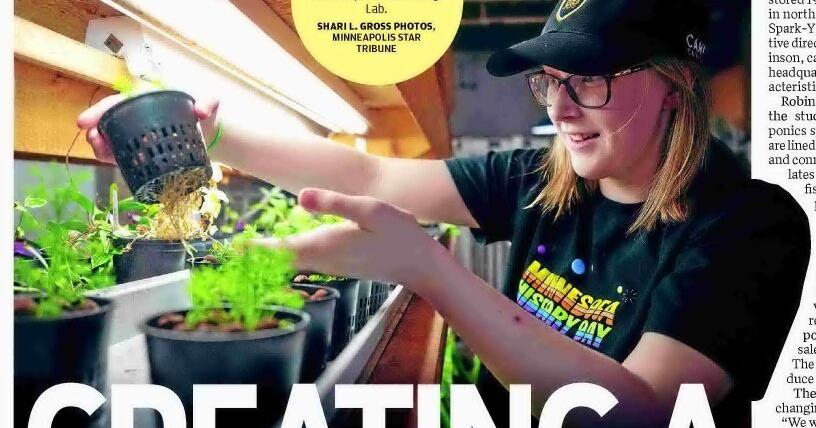After finishing high school, Makenna Short found herself at a crossroads with no clear direction for the future. She felt lost and uncertain about what lay ahead.
“I always struggled with a sense of insignificance in the world,” said Short, now 25. When it came to her career, she knew she wanted to make a difference and help people in some way but felt overwhelmed by the distance between her aspirations and reality.
Then, she discovered Spark-Y, a nonprofit based in Minneapolis that focuses on educating young people through hands-on projects centered around sustainability and entrepreneurship, both in and out of school.
Spark-Y, which stands for Youth, serves individuals aged 6 to 24 by providing education in public schools and offering opportunities for paid internships and apprenticeships on real-world projects, often related to urban agriculture or stormwater management. These projects help enhance skills in science, technology, engineering, arts, and math.
People are also reading…
Spark-Y provided Short with the inspiration to pursue her goal of making a difference in her community and set her on a new path in life. She described it as a unique approach to education that empowered her unlike traditional classroom settings.
Short remained involved with Spark-Y for several years, becoming an intern and leading the construction of a sustainable picnic pavilion in Minneapolis’ Beltrami Park. She went on to earn a degree in environmental studies from the University of Winnipeg in Manitoba while continuing her work with Spark-Y. Currently, Short works as a senior council assistant in Edmonton, Alberta, where she helps develop local community projects. Despite her professional growth, she remains a part of Spark-Y, serving on its board of directors.
“I have a deep love for the organization,” she said. “It instilled in me the belief that one person can create change, and that person could be me.”
‘Forward to their destiny’
At Spark-Y’s Urban Agriculture Lab in northeast Minneapolis, a large timber-framed aquaponics system serves as a focal point. The system, built by students, features shelves of edible greens connected to a fish tank. The water circulates between the tank and the plants, with fish waste nourishing the plants and the plants purifying the fish water.
Just like the symbiotic relationship in the aquaponics system, young individuals maintain the system for valuable job experience, with the produce harvested and sold to support the organization through sales to local co-ops, restaurants, and community-supported agriculture programs. This not only helps address worker shortages but also contributes to changing the lives of young people.
“Our primary goal is to assist youth who are in need by providing them with training that opens their minds to new possibilities,” said Zachary Robinson, CEO and executive director of Spark-Y. “When they join us without a clear direction, a spark is usually ignited.”
Spark-Y focuses on building skills, self-confidence, and ambition in the youth it serves, emphasizing diversity to narrow racial and economic achievement gaps. The organization recently launched Youth Pathways, a pilot program aimed at reducing recidivism among juvenile offenders and encouraging them to envision a brighter future.
“Regardless of their past actions, we challenge participants to think about their future,” said Robinson, noting that charges can be dropped for those who complete the program.
Expert mentors also work with the young individuals to provide guidance on future job opportunities.
“One of the students even started his own greens business,” Robinson shared. “We meet the students where they are and guide them towards their destinies.”
Robinson’s enthusiasm for sparking interest in youth is evident in his multifaceted approach, often combining anecdotes with mini science lessons. By creating connections that resonate with young individuals, Spark-Y aims to inspire a sense of curiosity and passion.
This year, Spark-Y’s projects include installing a rain garden, planting a roof garden, facilitating a STEM camp, building an outdoor oven, and filling planters at various locations, exemplifying the organization’s vision for the future of public works.





